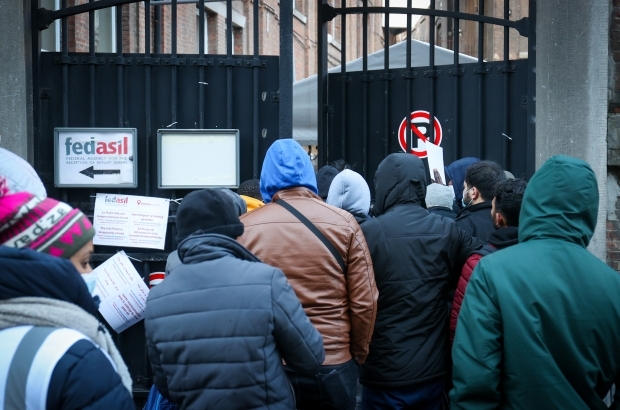- Daily & Weekly newsletters
- Buy & download The Bulletin
- Comment on our articles
4,000 asylum seekers lack shelter in Belgium
Asylum seekers are finding it harder and harder to find a reception centre in Belgium, new figures have revealed.
There was a backlog of 3,000 applications for accommodation at the start of 2024 and now it is 4,000, according to the federal agency for the reception of asylum seekers (Fedasil) figures.
At the same time, the amount of asylum applications is in line with recent years, said Thomas Willekens of the Flemish refugee council Vluchtelingenwerk Vlaanderen. “It’s a dismal picture, but we’re holding our breath for the future,” he said.
Meanwhile with just over 17,800 applications registered from January to June 2024, the 35,000 mark for the total number of international protection seekers in Belgium is also in sight this year.
At the current rate, a new record is also possible. 2022 was the highest year – with 36,871 applications. Last year the number fell by almost 4% to 35,507.
“We will undoubtedly come close to this record figure, due to the typical autumn peak coming up,” Willekens said.
“If the trend seen in recent years in September and October is repeated this year – with up to 7,000 applications in these two months combined – a new record number is very likely.”
Even faced with these figures, the fact remains that compared with previous years, the asylum crisis remains largely under the radar.
But a crisis it is. Hanne Michiel from the Humanitarian Hub - the Red Cross’s new centre for homeless people, transmigrants and asylum seekers on Avenue du Port - knows the asylum problem is far from over.
The day centre provides not only two meals a day to refugees in need, but also offers other forms of support: primary care, socio-legal advice, distribution of clothes and showers.
“The pressure on all our services is very high indeed,” Michiel said. “On average, around 400 people come here every day, but we can never help them enough.
"It’s frustrating for our employees. In fact, nothing has changed in recent years: the demand continues to outstrip supply."
And especially for single men, the day-to-day reality remains very depressing, Willekens says: “Day after day, we have to explain to them that finding a refuge takes around eight months. Their situation is just as dire as in recent years.”
While the waiting list has increased by a third in seven months, Fedasil has not been able to create additional care.
“There is clearly too little will to create shelters at a federal and local level,” Willekens said. And local resistance is unlikely to diminish as the October municipal elections approach.
For Willekens, it was particularly disturbing that “the federal government has come to regard single men on the street as the new normal. The impact of the European Pact on Migration is being discussed, but it will only bear fruit in a few years’ time.”
The Humanitarian Hub’s Michiel said political decision makers are regarded with scepticism in the humanitarian centre. “Financially we have few guarantees from the Brussels Region and this also applies to other regions," he said.
“We want to continue to focus on providing a dignified welcome and we will do everything in our power to ensure that the rights of refugees are respected, but at the moment there are insufficient prospects for the future, while our services are saturated.”


















